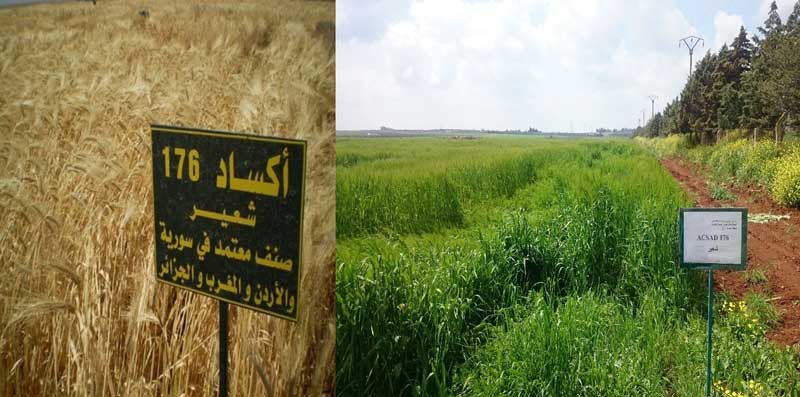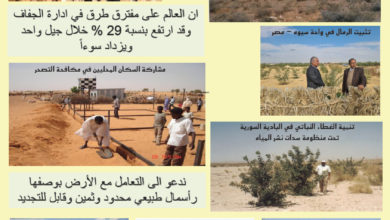Lebanon registered a barley variety of ACSAD named as (kfardan1).
The Lebanese Ministry of Agriculture registered a new variety of barley called “ACSAD 176”, authenticated in the Arab Center and named Kfardan 1.
The director-general of the Arab center for the studies of Arid Zones and Drylands, Dr. Nasr Edin Obaid, clarified in a statement that the results of field experiments and observations in Tal Amara and Lebanese farmers’ fields for this season and the previous seasons showed that the variety of barley “ACSAD176” is has high productivity and good grains quality.
He showed that the new variety proved to be tolerant to dry and resistant to brown spots and powdery mildew diseases facing the cultivation of barley in the regions of Baalbek and Hermel, indicating that this variety distinguished with high productivity under low rain-fed conditions, tolerance of drought, and resistance against diseases with an average yield of 4.5 to 5 tons per hectares In rainy areas, more than traditional cultivated varieties by 30%.
The Director-General of ACSAD confirmed that this variety has high agricultural specifications in terms of the high weight of 1000 grains and the contents of proteins reaching to 14 %, explaining that this variety was approved in Syria, Jordan, Morocco under the name of ACSAD 176, and under the name of “Nayla” in Algeria. The General Organization for Seed Multiplication distributes about 20 thousand tons annually to farmers in Syria.
He pointed out that annual Arab countries’ deficit of barley is about 11 million tons. Which provoked the organization to develop new genetic combinations of barley with a wide genetic base and high yields that are suitable for different Arab environments; being tolerant for biotic and abiotic pressures, especially drought, through the ACSAD program of barley breeding that resulted in the registration of 12 genotype in 7 Arab countries.
It should be noted that the Arab Center developed about 37 highly yielding varieties of Wheat and Barley that are distinguished by their highly tolerance of drought conditions as part of its efforts to enhance agricultural development and food security in the Arab world.




